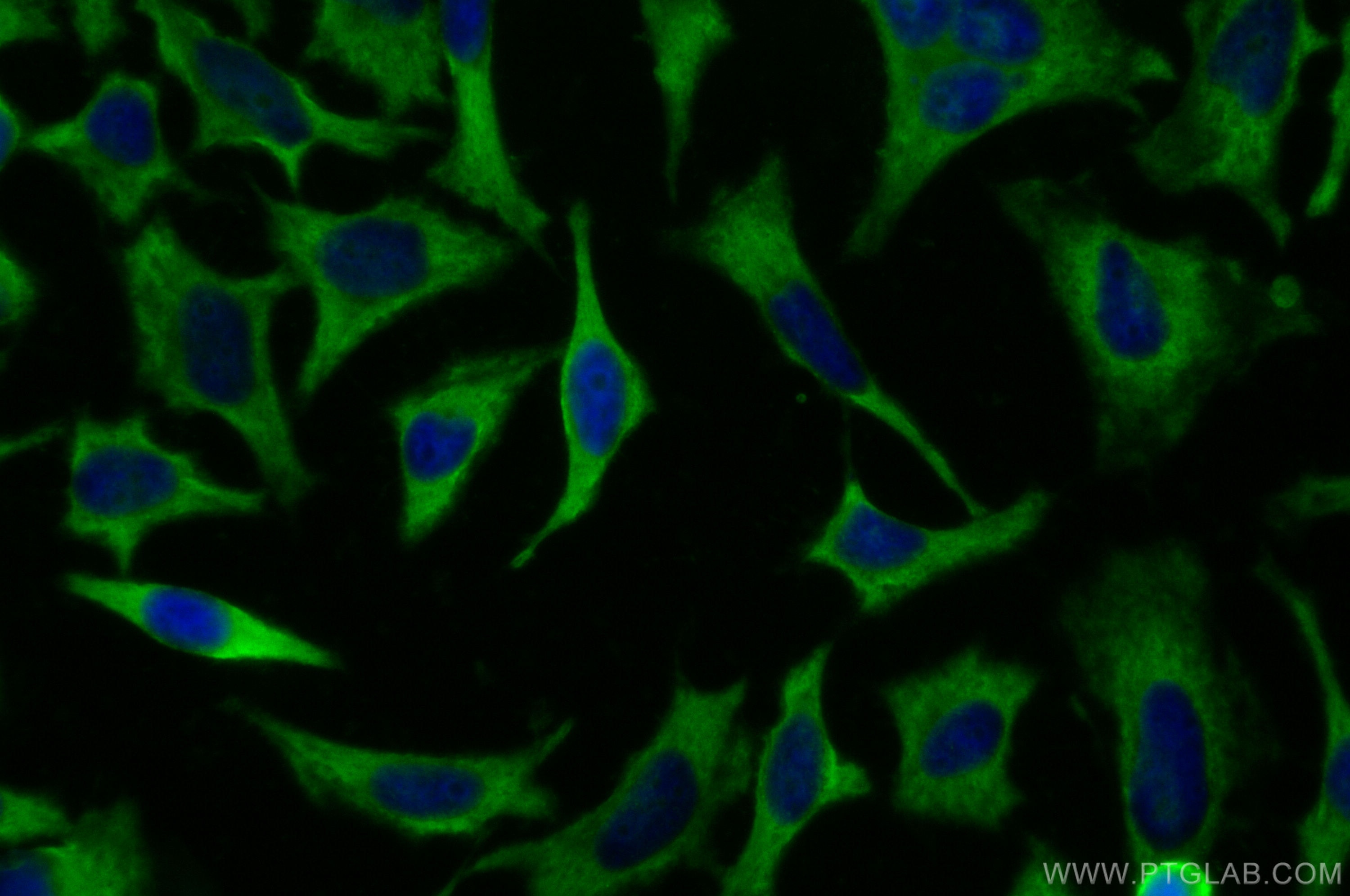Tested Applications
| Positive IF/ICC detected in | HeLa cells |
Recommended dilution
| Application | Dilution |
|---|---|
| Immunofluorescence (IF)/ICC | IF/ICC : 1:50-1:500 |
| It is recommended that this reagent should be titrated in each testing system to obtain optimal results. | |
| Sample-dependent, Check data in validation data gallery. | |
Product Information
CL488-67583 targets HINT1 in IF/ICC applications and shows reactivity with Human samples.
| Tested Reactivity | Human |
| Host / Isotype | Mouse / IgG2a |
| Class | Monoclonal |
| Type | Antibody |
| Immunogen |
CatNo: Ag16662 Product name: Recombinant human HINT1 protein Source: e coli.-derived, PET28a Tag: 6*His Domain: 1-126 aa of BC007090 Sequence: MADEIAKAQVARPGGDTIFGKIIRKEIPAKIIFEDDRCLAFHDISPQAPTHFLVIPKKHISQISVAEDDDESLLGHLMIVGKKCAADLGLNKGYRMVVNEGSDGGQSVYHVHLHVLGGRQMHWPPG Predict reactive species |
| Full Name | histidine triad nucleotide binding protein 1 |
| Calculated Molecular Weight | 14 kDa |
| Observed Molecular Weight | 14 kDa |
| GenBank Accession Number | BC007090 |
| Gene Symbol | HINT1 |
| Gene ID (NCBI) | 3094 |
| RRID | AB_3084361 |
| Conjugate | CoraLite® Plus 488 Fluorescent Dye |
| Excitation/Emission Maxima Wavelengths | 493 nm / 522 nm |
| Form | Liquid |
| Purification Method | Protein A purification |
| UNIPROT ID | P49773 |
| Storage Buffer | PBS with 50% glycerol, 0.05% Proclin300, 0.5% BSA, pH 7.3. |
| Storage Conditions | Store at -20°C. Avoid exposure to light. Stable for one year after shipment. Aliquoting is unnecessary for -20oC storage. |
Background Information
HINT1(Histidine triad nucleotide-binding protein 1) is also named as HINT, PKCI1, PRKCNH1,which is a member of the histidine triad (HIT) family, highly conserved in diverse species and ubiquitously expressed in mammalian tissues.It hydrolyzes adenosine 5'-monophosphoramidate substrates such as AMP-morpholidate, AMP-N-alanine methyl ester, AMP-alpha-acetyl lysine methyl ester and AMP-NH2.
Protocols
| Product Specific Protocols | |
|---|---|
| IF protocol for CL Plus 488 HINT1 antibody CL488-67583 | Download protocol |
| Standard Protocols | |
|---|---|
| Click here to view our Standard Protocols |




